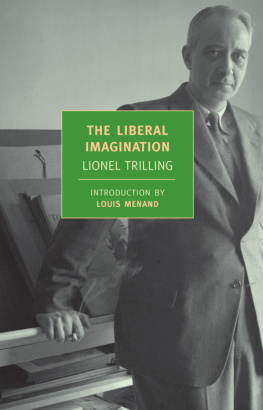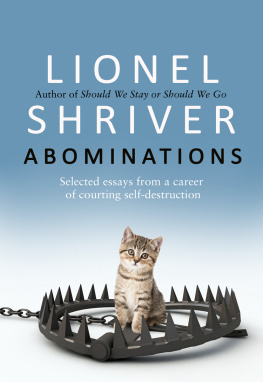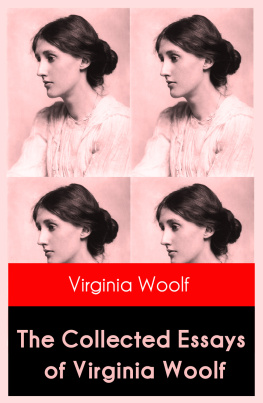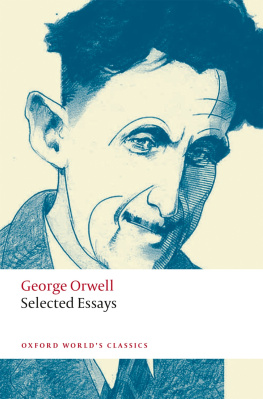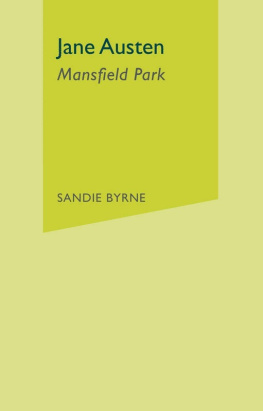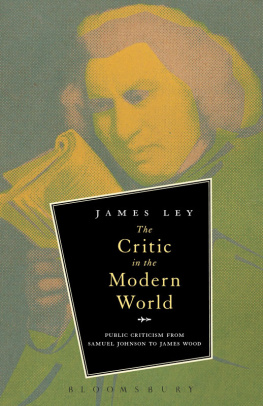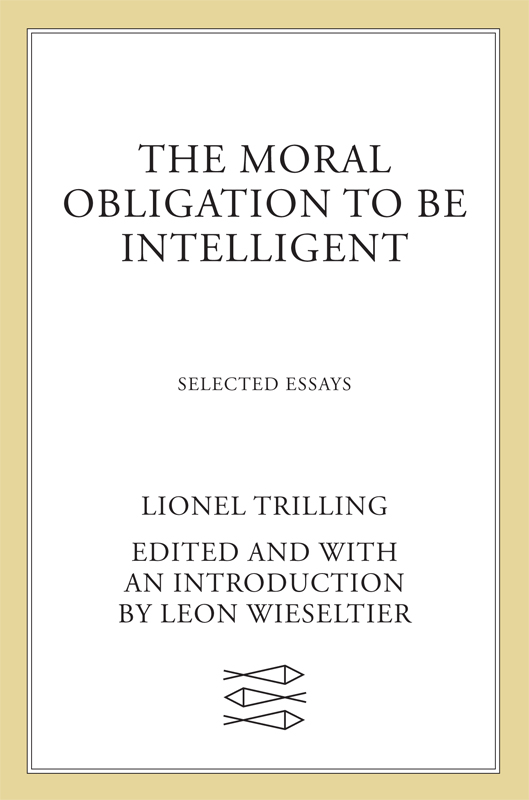
The author and publisher have provided this e-book to you for your personal use only. You may not make this e-book publicly available in any way. Copyright infringement is against the law. If you believe the copy of this e-book you are reading infringes on the authors copyright, please notify the publisher at: us.macmillanusa.com/piracy.
Contents
In memory of
Diana Trilling
Introduction
by Leon Wieseltier
In 1971 Lionel Trilling gave a talk at Purdue University on the subject of his work as a critic. He spoke autobiographically, which was not his custom. His notes for the occasion dwell at length on his experience as an undergraduate at Columbia College in the 1920s. The great word in the college was INTELLIGENCE, he wrote. An eminent teacher of ours, John Erskine, provided a kind of slogan by the title he gave to an essay of his which, chiefly through its title, gained a kind of fame: THE MORAL OBLIGATION TO BE INTELLIGENT.
Trilling must have startled his audience when he submitted that as a young man I did not count myself among those who were intelligent. Instead I was intuitive; and I rather prided myself on a quality that went by the name of subtlety. He did not aspire to intelligence, he explained, because it was not a quality that was required of a novelist, and he aspired to be a novelist, a calling that required only a quick eye for behavior and motive and a feeling heart. In Trillings criticism, certainly, there is no trace of this depleted conception of the novel. In 1947 he gave his own demonstration of the utility of intelligence for the writer of fiction in his novel The Middle of the Journey, which shrewdly examined the fideist mentality of American Communism and recorded the disfigurements that ideology visits upon experience. (It included a portrait of Whittaker Chambers as George Eliot might have drawn him.) It is hard to imagine a waking moment in Trillings life in which he was not consecrated to the intellect and to its cause. He had almost no higher term of approbation than to call something or someone exigent and strenuous. But youth is unexigent and unstrenuous. In any event, Trillings early indifference to intellectuality did not last long. (As he later remarked fondly about Elliot Cohen, he never played the game of being young.) And so he recalled that he was soon seduced into bucking to be intelligent by the assumption which was prepotent in Columbia Collegethat intelligence was connected with literature, that it was advanced by literature.
It must be said that Trillings professor did not always live up to his own maxim. John Erskines works included the novels Galahad: Enough of His Life to Explain His Reputation and Penelopes Man: The Homing Instinct, and a particularly witless essay in misogyny called The Influence of WomenAnd Its Cure. (It concludes with a coarse colloquium among Socrates, Diogenes, Herodotus, Pericles, Casanova, and Andr Chnier.) But still Erskine earned a place in the history of the humanities in America. A scholar of the English literature of the Renaissance, he created the General Honors course at Columbia, the immersion in great books that eventually transformed undergraduate education in America. We were assigned nothing else but the great books themselves, Trilling recalled in his seminar at Purdue, confronting them as best we could without the mediation of ancillary works. The excitement of a canon, of this canon: there was a time when there was such an excitement, though Trilling typically animadverted that the course was not exigent enough. In 1961, in Partisan Review, he complained famously of the complacence, the delighted glibness with which his own students at Columbia experienced, and thereby betrayed, their collision with the literary monuments of modernity. (Trilling was appointed an instructor in the English department at Columbia in 1931, and a few years later he completed the dissertation on Matthew Arnold that became his first book in 1939. Also in 1939, Nicholas Murray Butler, the president of the university, invoked his summer powers to appoint Trilling an assistant professor of English and the first Jew in the department to become a member of the Columbia faculty. Trilling taught at Columbia until his death in 1975. In a life without external incident, he became an authority on internal incident.)
The Moral Obligation to Be Intelligent had appeared in The Hibbert Journal in 1914. The disposition to consider intelligence a peril, Erskine began, is an old Anglo-Saxon inheritance. The grounds of this hoary demotion of the mind were moral, religious, and emotionalthis assumption that a choice must be made between goodness and intelligence; that stupidity is first cousin to moral conduct, and cleverness the first step into mischief; that reason and God are not on good terms with each other; that the heart and the mind are rival buckets in the well of truth, inexorably balancedfull mind, starved heartstout heart, weak head. The aim of Erskines manifesto was to end the peculiar warfare between character and intellect. Conscience, in his account, originated not in the English tradition, but in the German tradition; and not in the mind, but in the will. Yet it was in America that the party of the intellect was formed. Americans, Erskine proclaimed, were confederated in a Greek love of knowledge, in a Greek assurance that sin and misery are the fruit of ignorance. Americans momentously understood that if you want to get out of prison, what you need is the key to the lock [and] if you cannot get that, have courage and steadfastness. Social and economic problems were not problems of will, they were problems of mind.
Erskines essay was not immune, clearly, to the racialist idiosyncracies of its time, and its survey of anti-intellectualism in English literature (in the English novel especially) was sorely inadequate. Its construction of mental life in America was somewhat imbued with the new enthusiasm for expertise, with the technocratic inflection of the intellectual vocation. Yet finally Erskine extolled intelligence for more than its utility. Shifting rather fitfully from the pragmatic mood to the transcendental mood, he finished his essay with the vatic announcement that we really seek intelligence not for the answers it may suggest to the problems of life, but because we believe it is life,not for the aid in malting the will of God prevail, but because we believe it is the will of God. We love it, as we love virtue, for its own sake, and we believe it is only virtues other and more precise name.
This is an exalted jumble, and there is much in it from which Trilling would have recoiledits supernaturalism in particular, though he allowed that there are sublimities of character and understanding that may not be competently captured by an exclusively naturalistic vocabulary. (Of Eliots supernaturalism, Trilling wrote, I have spoken of it with respect because it suggests elements which a rational and naturalistic philosophy, to be adequate, must encompass) And Trilling emphatically believed that the problems of life must indeed be brought before the mind, though not for the purpose of eliciting anything so simple and so heartening as answers. The elements of Erskines creed to which Trilling must have kindled, and to which he hewed in all his criticism, were its avowal of the intrinsic worth of the mind, and its affiliation of the mental with the moral. The influence of the teacher upon the student is unmistakable, for example, in a withering commentary on Dreiser that Trilling wrote in 1946: But with us it is always too late for mind, yet never too late for honest stupidity; always a little too late for understanding, never too late for righteous, bewildered wrath; always too late for thought, never too late for nave moralizing.


